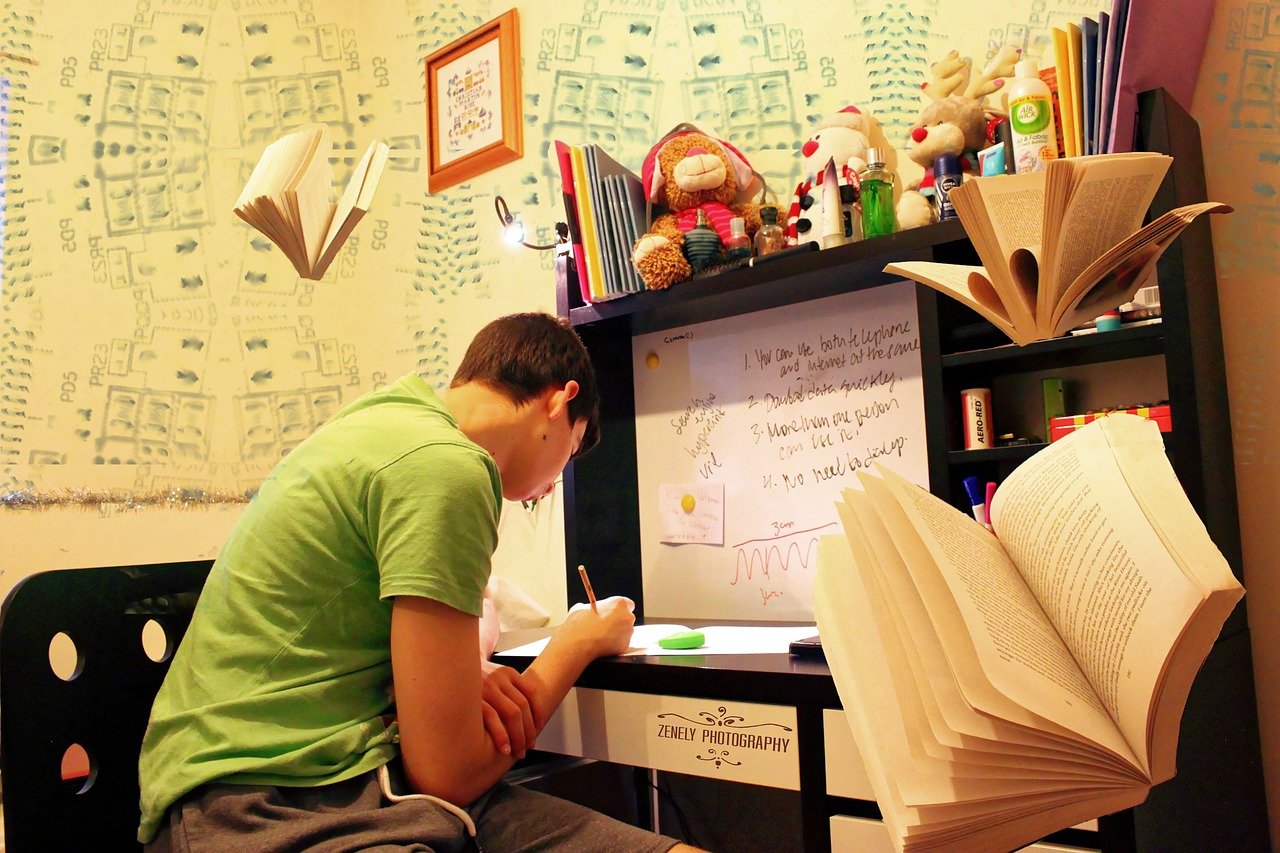Introduction
Are you getting the most from your revision time? Read this to check you have the right study environment, learn the importance of planning and get guidance from a psychologist on the best way to revise. Read also the key tips to use on the day of the exam. Denise has taken over 20 exams as a part time mature student (BA, MSc, MBA) and has fine tuned what works.
1: Where do you study?
You need an environment that is conducive to study so ask yourself the following questions:
- Does it have adequate lighting? (A light bulb in your face can cause eye strain).
- Does it have adequate ventilation? (Lack of circulating air can make you sleepy).
- Does it offer space and comfort? (You need a clear desk for writing and a comfortable chair for reading).
- Is it too warm or too cool? (Both extremes of temperature can make you sleepy).
Are there too many line-of-sight distractions? (Some students cannot work with a bed or pictures from home in view.) On the other hand, does it feel like a sterile prison? (Some students work more efficiently with their doors open.) - Are there too many audio distractions? (Some music may be fine, but loud rock with lyrics is usually distracting).
- Switch off social media and other online reminders. You can switch them back on as a treat when you have finished your revision session.
- Do friends find and distract you easily? (Tell them you must study and arrange a time when you will see them).
This is all very personal and individual; find out what works for you.
Activity: Am I happy with my study space? If not what changes can I make?
2: Create a plan
Do you have a plan – you might not want one, but it will make your parents happier if they can see a plan on the wall.
A plan keeps you focused, especially when you have many courses to revise – there can be a real danger in concentrating on either what you are really good at or your worst subject and to forget about everything else.
Work out how much time you are going to study across how many days and weeks. You can then divide the time between the number of subjects and schedule 1 hour slots.
Do let your parents know of your plan and how you are doing. Otherwise they will worry or nag! Be happy to tell them what you have done. This will help you, as through describing what you have learnt to someone else you are reinforcing your own understanding.
Activity: Do I have a plan? Take time to create one now.
3: When do I start revising?
Now! However early or late it is it is going to be the right time to follow your plan. The closer to the exam, the more time you need to spend on revision.
When do you feel most productive? Some people will study best in the morning, others prefer the evening. Think about when you work best and allocate more of your revision time then.
4: How to revise
To many people revision means sitting with their books open and reading it through, but this is passive and is not the way to remember. You need to give a sense of purpose to the task or else you will get bored. So, decide in advance what it is you are going to achieve from the session.
You can’t study for hours on end without a break, so have a time limit of 40-50 minutes and then take a 10-minute break. Perhaps you could use a timer to make you stop? If you find that your mind starts to wander after 20 minutes or so you will want to structure your time into shorter blocks.
The breaks help you to retain information. It’s not a case of just stuffing your brain full of information (into your short-term memory) but in connecting the new material with what you already know (in your long-term memory). You need to relax to allow this to happen.
As you get closer to the exams you will be studying for most of the day, but continue to take the regular breaks. And make sure to take a longer break every 3 hours. During this break, you want to give your brain time to work, so don’t start playing computer games, or looking at your social media accounts. Give your brain a chance to settle! Going for a walk or doing some sport is ideal.
You don’t have to revise in silence; background music can help because it shuts out distracting noises. It’s the complex rhythms of classical and rock music that can help by coordinating the part of the brain that controls rational and creative thought. However, make sure the lyrics don’t distract you.
Our brain finds it hard to concentrate on the same topic for long periods, so make sure you switch between subjects over the day and don’t spend the whole day on e.g. Science, but break it up with different subjects. You will also want to switch between reading and answering questions. Don’t spend all your time reading.
Researchers from Chicago University have found that it can help to use your imagination and remember the classroom scene when you were taught the subject. Your imagination and visual memory will then enhance your recall in the exam room. So, as you read, for example through history, see yourself in the history teachers room and read out loud using the teachers voice and mannerisms.
Part 2 will be posted in 3 days.





